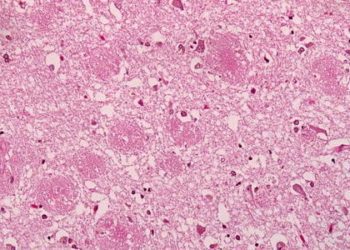Mental health symptoms of youth from higher-income households noted to be poorer during COVID-19 pandemic
1. In a cohort of youths during the COVID-19 pandemic lockdown, mental health symptoms were worse in youth living in higher-income households compared to youth living in lower-income households.
Evidence Rating Level: 2 (Good)
Study Rundown: The COVID-19 virus spread rapidly throughout the world, and to decrease spreading measures, several lockdowns were initiated. Although the lockdown had some positive effects on the spread of the virus, it significantly negatively impacted youths, particularly their mental health. Adolescence is an important period that has been overly impacted by mental health struggles, disproportionately in those living with a low socioeconomic status. Thus, to better understand the impact of the COVID-19 lockdown on the mental health of individuals living in these areas, a cohort study was conducted with previous data provided by the Adolescent Brain Cognitive Development (ABCD) Study. Baseline income levels were used by determining an income-to-needs-ratio (INR) for each household, calculated by dividing the total income by the poverty rate per household size. The main caregiver of each child also completed the child behaviour checklist (CBCL), assessing youth’s behavioural and emotional symptoms. While both the caregiver and the child completed the family environment scale (FES), assessing conflict among family members. Although the study had significant results, it was unable to identify causal pathways between lockdown restrictions and specific socioeconomic and cultural groups. Despite this, the study showcased the relationship among disparities among youth from a variety of different socioeconomic backgrounds and the pandemic, however, further research with ABCD should be conducted.
Click here to read the article in JAMA Network Open
Relevant Reading: Socioeconomic deprivation and inequalities in mental well-being during the COVID-19 pandemic among adolescents
In-Depth [Retrospective Cohort Study]: A longitudinal cohort study was conducted with the goal of determining the effects of the COVID-19 pandemic lockdown on the mental health of youth in differing socioeconomic status households. Only youths were eligible to participate in the study, and of those, individuals were only excluded if they had missing data from the 2-year follow-up visits. After meeting the eligibility criteria, a total of 10 399 individuals were included in the study. Of the participations, 3947 (52.3%) were male, 2084 (20.3%) were Latinx/Hispanic, 1491 (14.5%) were Black, 1252 (12.2%) were multiracial, 6765 (66.0%) white, 4600 (44.2%) reported that their caregiver’s education level was below a 4-year college degree, 2475 (26.2%) had INR below 100% meaning experiencing poverty, or between 100% and less than 200% meaning they were near poverty. Of which, 7493 were prepandemic while 2906 were intrapandemic, with the former having slightly younger age (129.8 [7.7] vs 131.6 [7.7] months [SD]) and interstudy interval (16.1 [2.7] vs 11.7 [1.8]). When all other variables were held constant, a 1 unit increase in INR was associated with a decrease in the average rate of change in problems overall. Worse mental health symptoms in intrapandemic youths were associated with being in a higher socioeconomic household compared to those with better mental health symptoms (0.79 [95% CI, 0.37-1.22; false discovery rate [FDR]-corrected P<.001) when other variables were held constant. Between groups, a similar trend was observed with respect to CBCL, while higher INR was associated with improved behaviour problem scores for the majority of CBCL subscales. Both of these results suggest exposure to the pandemic with lower INR caused less negative behavioural outcomes compared to values seen from prepandemic groups. Overall, with worse responses to the pandemic seen in lower income families, other stressors may be presumed, as higher income youths fared worse in the study assessing mental health.
Image: PD
©2024 2 Minute Medicine, Inc. All rights reserved. No works may be reproduced without expressed written consent from 2 Minute Medicine, Inc. Inquire about licensing here. No article should be construed as medical advice and is not intended as such by the authors or by 2 Minute Medicine, Inc.








